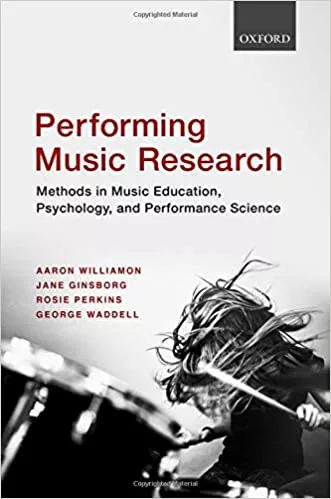
Performing Music Research: Methods in Music Education, Psychology & Performance Science
What is it that drives people to undertake music research? Such interest frequently grows from on-the-ground experiences as learners, performers, facilitators, composers, arts administrators, and educators. It can emerge, for example, from music teachers trying out new teaching methods, performers wishing to know more about how to improvise effectively, educators pursuing the most effective ways to structure music curricula, musicians aiming to explain why their music enhances wellbeing among different groups of people, and orchestral managers seeking to promote and protect the health of their players.
At the heart of all of these enquiries lies a question of some sort, and it is these research questions that determine the direction of the research to be undertaken.
Performing Music Research is a comprehensive guide to planning, conducting, analyzing, and communicating research in music performance. The book examines the approaches and strategies that underpin research in music education, psychology, and performance science. It reviews the knowledge and skills needed to critique existing studies in these fields and to design and carry out new investigations. Perspectives on qualitative, quantitative, and multistrategy methodologies are highlighted across the book in ways that help aspiring researchers bring precision to their research questions, select methods that are appropriate for addressing their questions, and apply those methods systematically and rigorously. Each chapter contains a study guide, comprising a chapter summary, a list of keywords, and suggestions for further discussion, and the book concludes with a resources section, including a glossary and supplementary material to support advanced statistical analysis.
The book”s companion website provides information designed to facilitate access to original research and to test knowledge and understanding.
